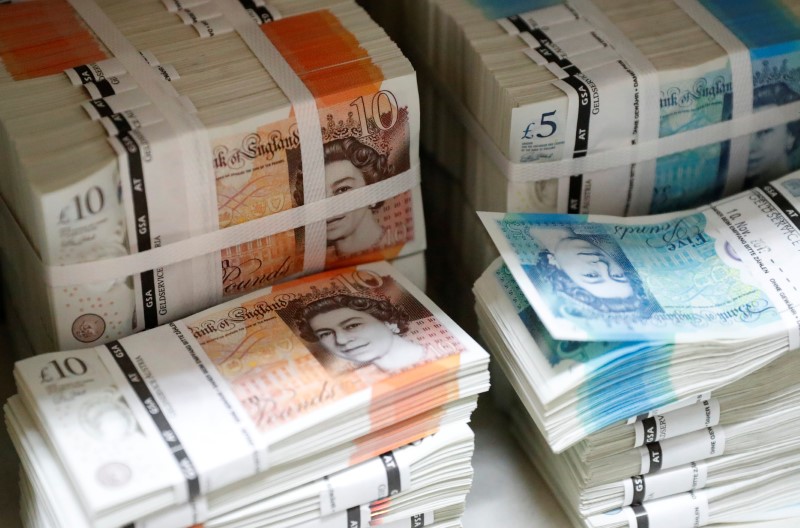By Yasin Ebrahim
Investing.com – The pound surged to more than two-year highs on Friday, and remained on track for its fifth-weekly win on growing expectations for a strong vaccine-led rebound in the economy ahead of an important week of data that will include clues on monetary policy.
GBP/USD rose 0.26%, to $1.3850, its highest level since April 2018.
The unrelenting rally in the pound comes just as the latest figures show the U.K. has rolled out more than 14 million Covid-19 vaccines across the nation and remains on track to meet the government’s 15 million target by mid-Feb. The speedy roll out of vaccines coupled with a fall in infections have prompted investor bets the economy will likely rebound stronger than expected when it eventually reopens.
On Friday, the U.K.’s coronavirus reproduction number - or R number - slipped below one to between 0.7 and 0.9 for the first time since July, easing investor fears about the impact on the economy of a prolonged lockdown.
An improving coronavirus backdrop and faster roll out of vaccines, however, are just one side of the story that has seen the pound hit multi-year highs, according to ING.
“While the bullish repricing of the pound specific outlook has been the main supporting factor of the cross [GBP/USD] over the last two to three weeks, right now GBP/USD is benefiting from the EUR/USD recovery,” ING said “Looking ahead, we expect both factors to work in favour of GBP/USD, with the cross moving towards the 1.50 level throughout the year.”
EUR/USD was flat at $1.2121 on Friday.
Looking ahead, the impact of the pandemic will still be reflected in the upcoming round of U.K. economic data, including inflation and retail sales data due next week, expert said.
“The UK data highlights of the coming week will be the latest inflation figures on Wednesday and official retail sales figures on Friday. The intensification of the pandemic and tightening of containment measures at the start of the year might be expected to add some downwards pressure to inflation,” Daiwa Capital Markets said. “A reweighting of the components in the inflation basket might also have an impact, as could recent sterling strengthening,” it added.
Retail sales data due Friday, meanwhile, comes as England remains in its third lockdown. Excluding fuel, retail sales are forecast to fall 1% on the month in January, though leaving them 4.7% higher compared to their pre-pandemic level.
On the monetary policy front, meanwhile, Bank of England Deputy Governor Ramsden will be speaking on Wednesday about the BoE's QE policy. “The comments might be of interest in light of the MPC's decision this month to review it's current tightening strategy, whereby the BoE would not reduce its asset holdings until Bank Rate had risen to 1.5%,” Daiwa Capital Markets added.
